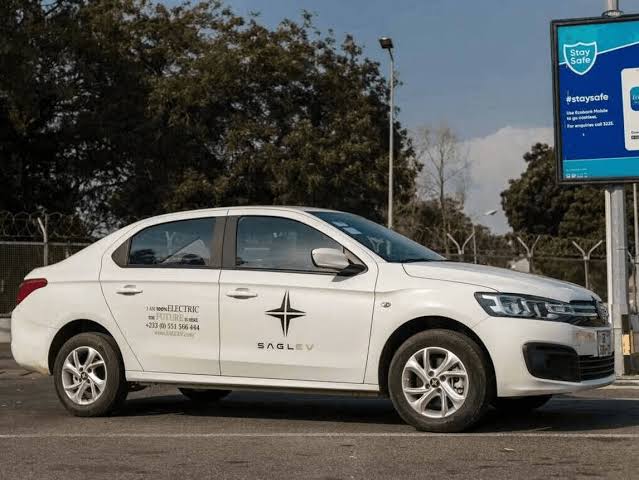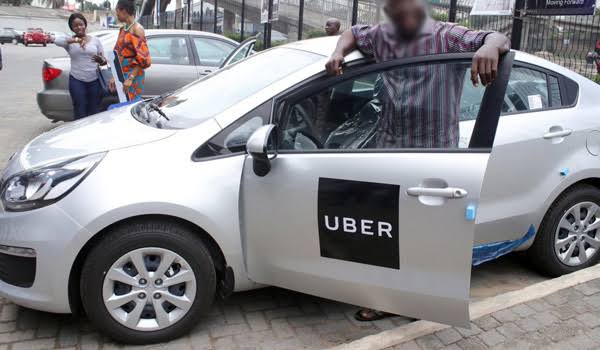Physical Address
60 Ekwema Cres, Layout 460281, Imo
Physical Address
60 Ekwema Cres, Layout 460281, Imo

Uber and Bolt drivers in Nigeria are expressing a mix of disbelief and frustration following the announcement of the price for SAGLEV’s electric car, which has been set at a staggering twenty-eight million naira.
This unveiling occurred during a recent symposium in Lagos, where SAGLEV, a local electric vehicle (EV) manufacturer, aimed to position its Sedan as a viable option for ride-hailing drivers.
However, the price point has raised significant concerns among those who rely on e-hailing platforms for their livelihoods.
Many drivers are questioning how they are expected to afford a vehicle that costs 21 million naira more than the average car they currently consider.
Shalam, an Uber driver, articulated the sentiment shared by many when he stated, “It is not meant for the common man. We are here struggling to buy a Corolla of 7 million; some of us are still looking for a car for delivery or hire purchase, yet they are advertising a car of 28 million.”
His comments reflect the broader sentiment among drivers who feel excluded from this new market offering.

Another driver humorously remarked, “28 million? Na jeep then wan give us?” This reaction underscores the disbelief that such an expensive vehicle could be marketed towards individuals whose earnings often barely cover basic living expenses.
Also read – Drivers Shutdown Uber and Bolt Apps in KwaZulu-Natal Over Safety Concerns
SAGLEV has indicated that it will offer a financial plan allowing for installment repayments.
Nonetheless, many drivers remain skeptical about this arrangement. Morgan, another driver, expressed his doubts about the feasibility of such an investment. “Electric car is not for the weak. Me I am weak. For now, any driver who wants to collect a car for 28 million naira will end up crying,” he lamented.
Another driver provided a detailed breakdown of what it would take to pay off the vehicle. He calculated that if he were to pay 40,000 naira weekly, it would take approximately 14 years and five months to fully repay the loan based on his projected earnings from driving.
“Let’s go back to the drawing board with some calculations,” he said. “40,000 Naira weekly x 4 = 160,000 monthly… 28 million divided by 1.92 million yearly equals 14 years and five months. Let me come and be going,” he concluded.
Also read – Bolt and Uber Could Raise Prices in Kenya Due to Government’s 6% ‘Significant Presence’ Tax
A representative from SAGLEV attributed the high price tag to external economic factors, particularly the naira/dollar exchange rate.
The company noted that these SAGLEV’s electric cars were sold for around 13 million naira two years ago when they were first introduced into the market.
This explanation does little to alleviate concerns among drivers who feel that even with financial plans in place, the initial cost remains prohibitively high.
SAGLEV aims to target e-hailing drivers specifically because sedans are generally not favored by wealthier individuals seeking luxury vehicles.
However, as many drivers have pointed out, the current economic climate makes it difficult for them to invest in such high-cost options.
Read Next: Bolt Nigeria now Offers Fuel and Repair Loans to Drivers on its App
Despite widespread skepticism, some drivers like Ajibola believe that embracing electric vehicles is essential for adapting to changing global trends.
He argues that Nigerian e-hailing drivers must evolve alongside advancements in mobility technology.
However, this perspective is tempered by practical concerns; many drivers feel that current fare structures on platforms like Uber and Bolt do not support such significant investments.
“Is it with the ridiculous price drivers have been complaining about that we want to make 120,000 naira or more? If I buy a 28 million naira car now, is it with InDrive and Bolt’s ridiculous prices I will be running around?” questioned one frustrated driver.
Also read – Bolt Nigeria now Offers Fuel and Repair Loans to Drivers on its App
SAGLEV’s CEO Sam Faleye maintains that transitioning to electric vehicles is crucial for the future of mobility in Nigeria.
He believes that while the initial investment may seem daunting now, it is necessary for long-term sustainability in ride-hailing services.
However, as it stands, many Uber and Bolt drivers find themselves at a crossroads where the promise of electric mobility feels distant due to financial barriers.
If SAGLEV hopes to appeal to this demographic, it may need to reconsider its pricing strategy and develop more accessible financing options tailored specifically for those who rely on ride-hailing as their primary source of income.
Was this information useful? Drop a nice comment below. You can also check out other useful contents by following us on X/Twitter @siliconafritech, Instagram @Siliconafricatech, or Facebook @SiliconAfrica.